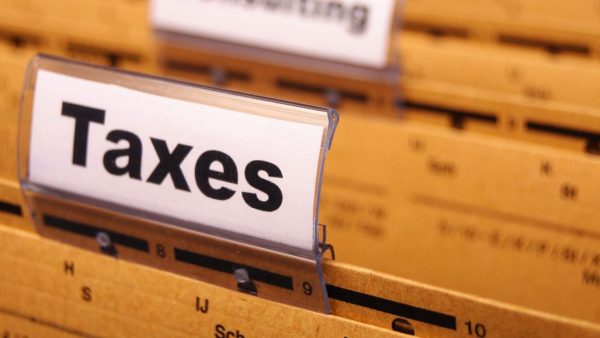The tax schedule 2018 continues to arouse the wrath of the Ivorian private sector skinned alive by a series of measures adopted as part of the « modernization of the tax system » according to the authorities.
« It’s a step backwards, » Jean Kacou Diagou, the former president of the group and founder of the NSIA group, who stepped up to the plate last Thursday during the presentation of the new text, said: seat of the CGECI. « The tax schedule 2018 was made without the input of the bosses (…) » he said, referring to « a tax hype » intended only to collect « revenue without worrying about the impact on climate of where employers advocated « development taxation ».
In the same vein, Perfect Kouassi, the vice president of the Chamber of Commerce and Industry criticized the government for going « in one direction » without taking into account the concerns expressed by the private sector. It sees it as a brake on investment and an exhortation for SMEs to remain in the informal rather than seeking to integrate into the modern economy.
What is it about ?
The tax schedule 2018 officially entered into force last January 2 includes forty articles including « arrangements » of the tax system.
Among the articles criticized, « the development of the Flat Minimum Tax » (Article 12) applied to taxpayers of the « Normal Real Plan ». The tax rate goes from « 0,5% to 1% » of the TTC turnover and the minimum threshold of perception is raised from 3 to 5 million (against 3 million so far) and the maximum of 35 to 50 million FCFA .
Another article pointed out, that relating to « the development of the thresholds of taxation and suppression of the regime of the real simplified profit » (article 11). Thus, the « Simplified Real Plan » applied to taxpayers whose turnover TTC (CATTC) is between 50 and 150 million FCFA is deleted.
For taxpayers subject to the « Normal Real Profit Plan », the minimum threshold (150 million) is lowered to 100 million. At the level of the people subject to the « Synthetic Regime », the CATTC target range from 5 to 10 million is increased from 50 to 100 million. Note that a « single » tax rate of 5% is set for taxpayers whose CATTC is between 5 and 10 million, and 8% for those whose CATTC oscillates between 50 and 100 million.
New charges
A new series of taxes is also making the economic operators cringe. This is the case for excise duty rates on beverages that take the elevator with rises ranging from 5 to 15 points (champagne, for example). Regarding tobacco, the excise rate goes from 35 to 38%. And at the level of cosmetic products and luxury tourism vehicles, excise duties are instituted at the rate of 10%.
Other taxes are introduced such as a 0,5% tax on mobile operators’ money transfers, a tax on the sale of logwood, a tax on the remuneration of cashew nut intermediaries or a tax on another on the gains of more than 1 million obtained in games of chance.
Also, in its article 20, the tax appendix expands the scope of the Tax on land holdings of farms with rates ranging from 2 500 (sugar cane, cashew) to 7 500 per hectare (Hevea ) for areas harvested of more than 100 ha.
International commitments
In its introductory note to the tax schedule, the Directorate General of Taxes (DGI) emphasizes that these measures contribute to creating « the conditions of a strong economy driven by the private sector », not without mentioning the implementation of » support measures « to the private sector.
In addition, these texts respond to the need to be in line with « international commitments » in the WAEMU framework and at the level of « relations with development partners » noted the DGI. In this case, the country intends to raise the tax rate from 16,5% 2016 to 20% in 2019, a recommendation of the Bretton Woods institutions.
In a context of falling prices of coffee and cocoa, the Ivorian government has seen fit to nibble some revenue points from the private sector to complete a 2018 budget valued at 6 756,3 billion FCFA (up 4,8%) which 3 406 billions of tax revenue.
Faced with the general outcry of economic operators, the DGI organizes a meeting with the press this January 16 to explain in detail the new tax system.



